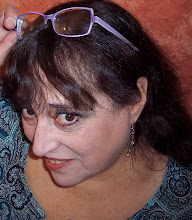“Imagination is more important than knowledge.”--Albert Einstein (Quoted in Chapter Three of The UPositive Guide to Goal Attainment for Creative People)
I love this quote. It makes me think every time I read it. I was raised, like many of us, to believe that knowledge was the key to the world. The more information we retained, the smarter we were…the more successful we would become. We were rewarded for As in school, punished for low grades. And obtaining those grades often meant letting go of our imaginations that might argue with the “facts” or focusing our left brains to memorize and store the information that we were taught. If we questioned too much, or asked the “wrong” questions, we were admonished. Repeating the data perfectly, which is defined as obtaining knowledge, became the goal for success.
And here comes Einstein, of all people, the epitome of shifting our knowledge of the universe and how it works, saying that knowledge isn’t the most important goal. Imagination, of all things---a right-brain activity---is more important. How can that be?
Bottom line for me in answering this is that without imagination our knowledge would never grow. We would pass the exact same information from generation to generation, never learning anything new, never expanding our experience, never achieving breakthroughs in science or mathematics or even chemistry---all arenas we usually think of as Left Brain.
Kekule, who discovered the benzene ring which brought major breakthroughs in chemistry and therefore medicine, first saw the structure in that half-dream state of the imagination. Einstein himself, after working his Left Brain into exhaustion trying to figure out his theory, finally reached his Theory of Relativity lying on his back staring at the sky in a trance state. These are all right-brain, or imagination, states of being.
It is, indeed, the imagination that allows us to increase our knowledge. That makes complete sense in rereading Einstein’s quote.
Are there any other ways you see to read the quote? Please post your replies here. I’m looking forward to reading them.
--Batya
Wednesday, January 21, 2009
Imagination vs. Knowledge
Labels:
Creativity,
creativity coaching,
Einstein,
imagination,
knowledge,
left brain,
right brain
Subscribe to:
Post Comments (Atom)




No comments:
Post a Comment